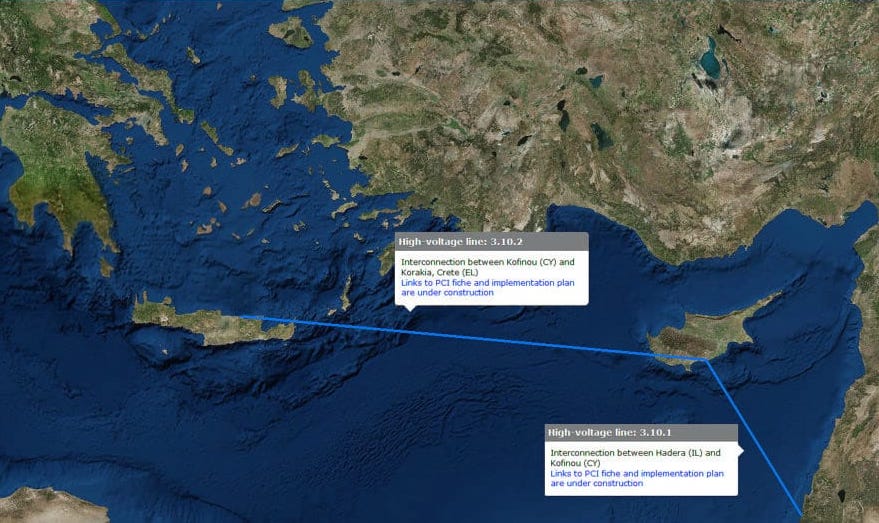Cost-benefits of electricity cable expected by end of month

The first results of the cost-benefit study requested by the energy ministry for the Greece-Cyprus Great Sea Interconnector electricity project are anticipated to be unveiled by the end of May, according to an announcement released on Tuesday by Greece’s Independent Power Transmission Operator (Admie).
The Great Sea Interconnector – formerly the EuroAsia Interconnector – is the commercial name given to the mooted undersea cable linking the grids of Cyprus, Greece and Israel.
The cost-benefit study was requested by Energy Minister George Papastasiou in a letter addressed to Admie dated April 2, 2024.
“In response to the request for information from Cyprus’ energy ministry regarding the progress of the study, meetings between the Admie operators and officials from the energy and finance ministries [of both Cyprus and Greece], are scheduled to take place in the immediate future,” the announcement said.
Admie also stressed that for the project to be sustainable, the remaining regulatory decisions pending from both Greek and Cypriot regulatory authorities need to be promptly addressed.
“Any further delay will burden electricity consumers in both countries,” it added.
At the same time, Admie welcomed as a positive development for the Great Sea Interconnector the stance taken by the Regulatory Authority for Energy, Waste and Water (RAEWW) in recent days regarding the entry methodology for the interconnector.
“It marks a significant milestone for the smooth implementation of the project,” Admie said.
“The consultation process is set to be completed before the end of May,” the announcement said. “Admie will submit its comments in the coming days, within the framework of the consultation, regarding the methodology initially proposed to RAEWW.”
Last month, Papanastasiou assured that “Cypriot consumers should not pay anything for the Great Sea Interconnector until the project is up and running.”
“It’s a matter of principle,” he said. “As long as the cable is not operational, no one is justified in charging for future electricity flows.”
The project, which is set to cost €1.9 billion, is expected to go operational in 2029. Given the multiple benefits that come with it – unlocking capacity for renewables – the expenses should be paid off quickly after it goes live.
As it stands, Cyprus will bear 63 per cent of the cost, and Greece 37 per cent. This is because the benefits to Cypriot consumers are far greater.
